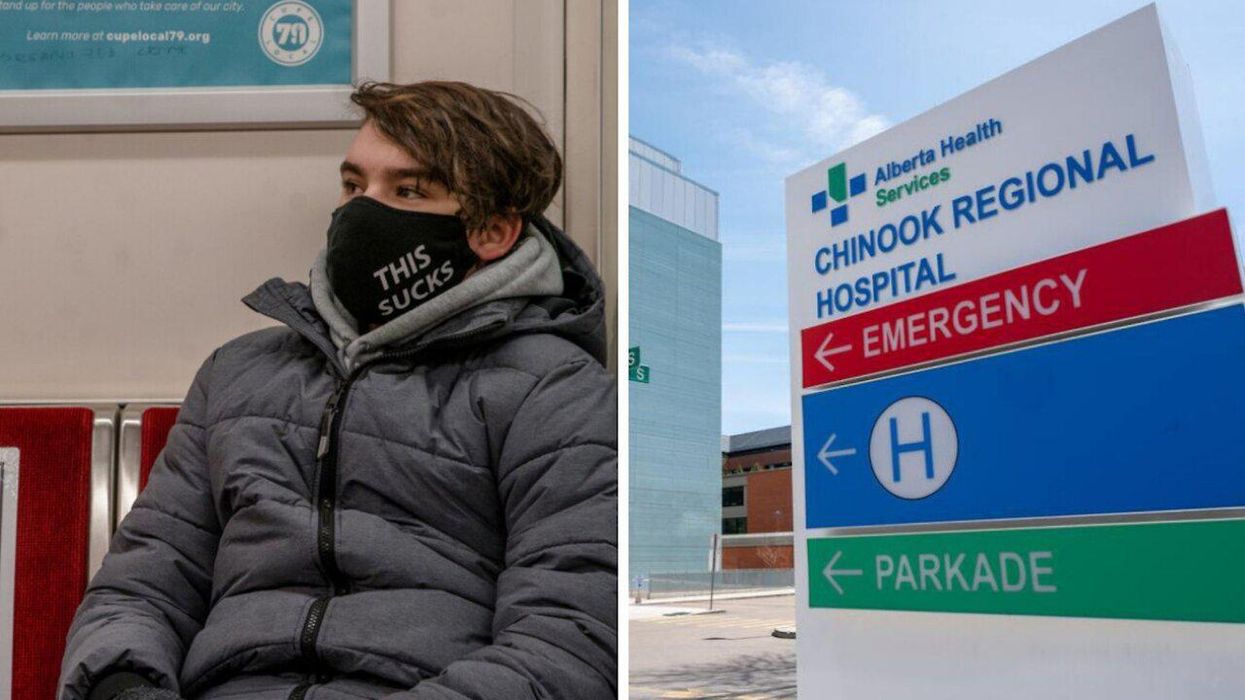Here's Everything You Need To Know About The Fourth Wave Of COVID-19 In Canada
It will look a lot different for vaccinated and unvaccinated people, experts say.
Experts agree that the fourth wave of COVID-19 in Canada is on the horizon, leading to many discussions about what it will look like.
Here's everything you need to know about it, including how it will spread and who will be affected, according to experts and government officials.
How it will spread
Dr. Colin Furness, an infection control epidemiologist, told Narcity that there is "no doubt" that the fourth wave will happen in the fall and there will be a divide between people who are fully or partially vaccinated and people who are unvaccinated.
He said that caution is still necessary even for fully vaccinated people, especially in environments like large indoor gatherings. "You don't want to expose yourself to COVID," he said. "You just don't want to do that."
Furness noted that the fourth wave in Ontario, specifically, "will be sparked by a resumption of indoor gatherings."
Chief Public Health Officer of Canada Dr. Theresa Tam has said that the fourth wave won't be caused by the border reopening and Americans coming into Canada, but will instead come down to what's happening within Canada and with the Delta variant.
"If we're going to get a fourth wave, based on our modelling, including modelling importations, it's likely to be driven by domestic transmission events rather than importation cases," she said.
Who it will affect
"If you're unvaccinated, your risk has gone a lot higher," Furness said, because of variants like Delta.
He also believes that the fourth wave "will be almost entirely experienced by unvaccinated people" and there will be "sporadic, intense outbreaks, harder to anticipate or predict."
It will be "rare" for a fully vaccinated person to end up in the ICU because of COVID-19, he added.
Tam has also said that unvaccinated people will be at risk during the fourth wave, but she added that it will be unvaccinated young people who are the most at risk. It's expected that with cases largely concentrated among young people who haven't received vaccine doses, the spread will extend to unvaccinated older people as well.
What's being done
As provinces have started to reopen and ease restrictions, there have been calls for vaccine certificates and passports for domestic and international purposes.
Toronto Mayor John Tory has asked the Ontario government to provide proof of vaccination certificates for Ontarians, but Premier Doug Ford said that will not happen because he thinks it will create a divide in the province.
At the national level, it was announced on August 11 that vaccine passports for travel are set to be made available to fully vaccinated Canadian citizens, permanent residents and temporary residents in the fall. They will include information like what type of vaccine a person received along with where and when the doses were administered.
For the 2021-22 school year, some universities and colleges in Canada are requiring vaccinations to live in residence, while others are mandating them for students, staff, faculty and anyone who will be on campus.
Health Canada has a robust website with all the latest information on COVID-19 vaccines and can answer any questions you may have.
